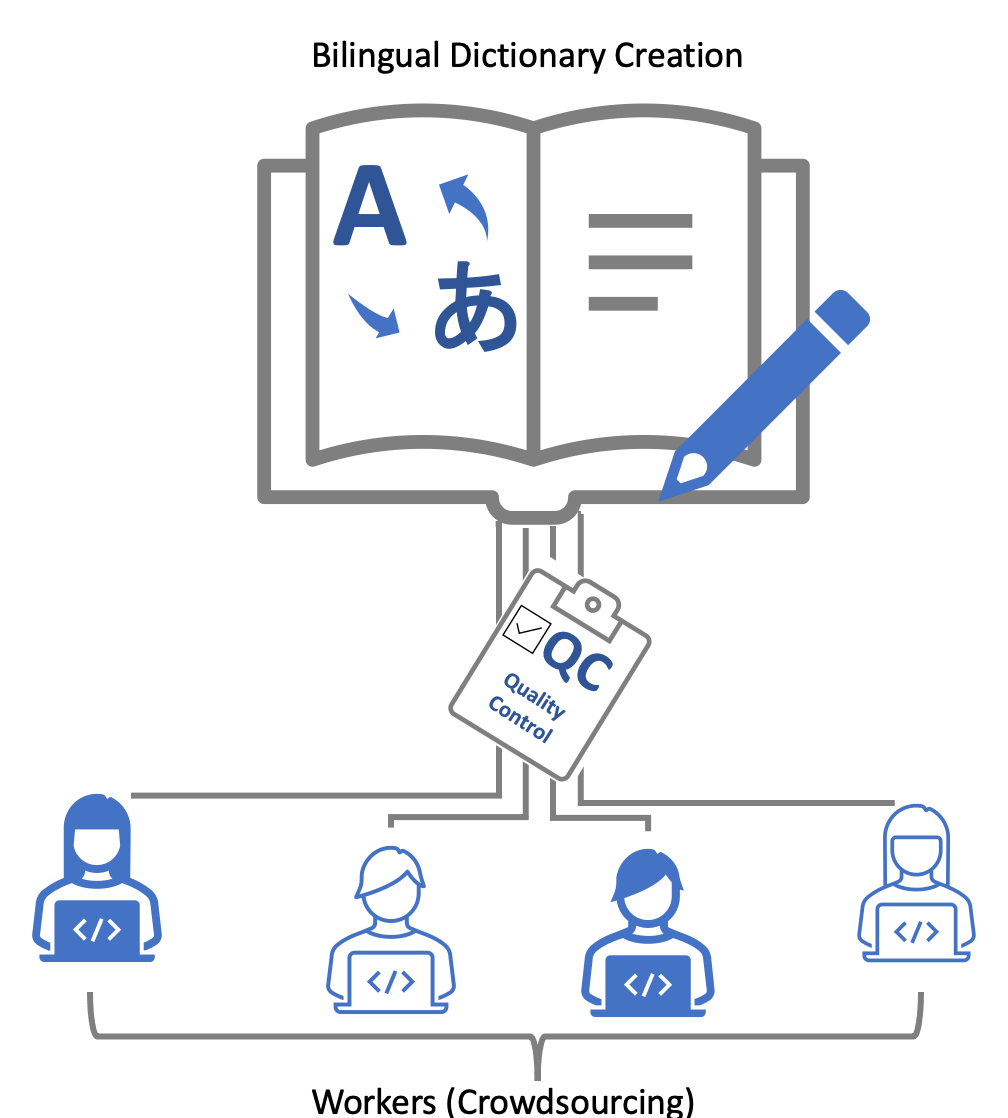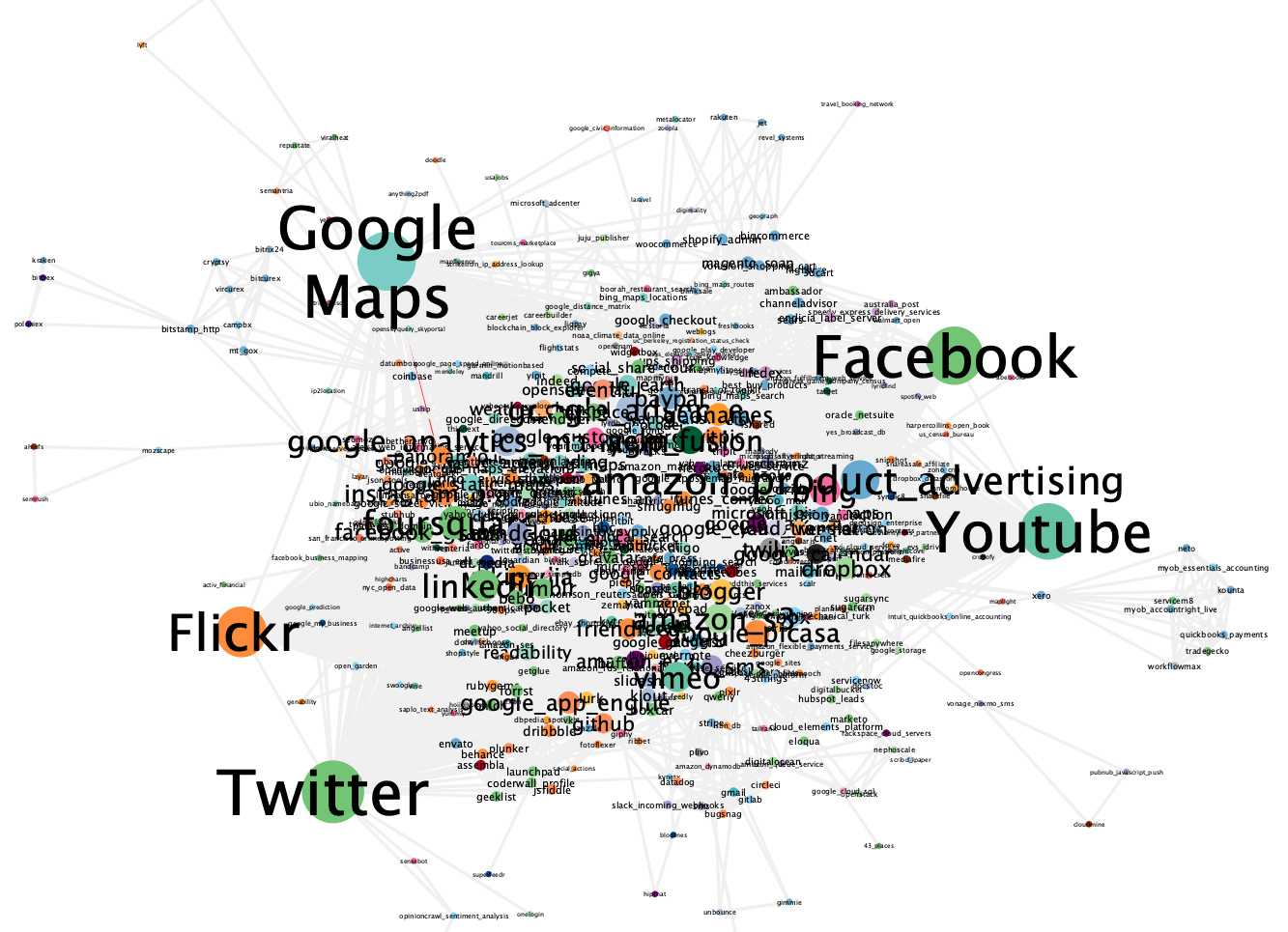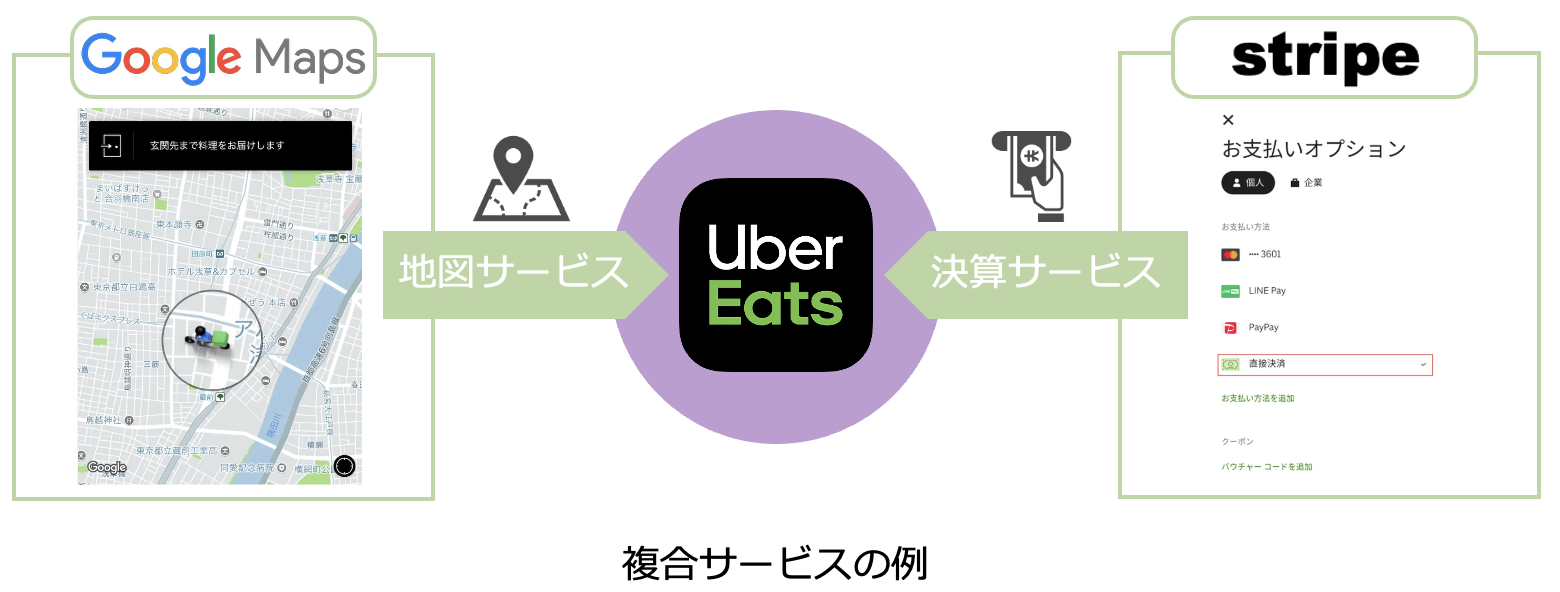Services Computing
We have been working on technologies related to service computing. Our work-in-progress are listed as follows:

Quality Control for Crowdsourced Bilingual Dictionary Creation
In conventional crowdsourcing-based bilingual dictionary creation, multiple workers freely translate words and evaluate correctness by majority vote. However, when this method is used to create bilingual dictionaries for languages with few speakers, such as low-resource languages, many workers who are not familiar with the language participate in the majority vote, and the reliability of the majority vote evaluation is significantly reduced. Therefore, we aim to improve the quality of the generated bilingual data by using a method that assigns tasks to workers who are familiar with the corresponding language pairs based on confidence values and a method of integrating responses using a super-problem in which majority voting is performed on evaluation sequences for multiple evaluation tasks.
[地田大樹, 村上陽平. 対訳辞書作成のための信頼に基づくクラウドソーシングの評価, サービスコンピューティング(SC), 電子情報通信学会技術研究報告, Vol. 119, No. 482, SC2019-49, pp. 91-96, 2020.-In Japanese]
Presentation: 山本涼太郎, 村上陽平. Deep Knowledge Tracingを用いた対話作成タスクの予測, 情報処理通信学会総合大会, 2024
Presentation: Ryotaro Yamamoto, Zhang Yuxuan, Yohei Murakami, Mondheera Pituxcoosuvarn. Task Assignment in Crowdsourcing Using Deep Knowledge Tracing, The 23rd IEEE/WIC International Conference on Web Intelligence and Intelligent Agent Technology, 2024

Service Clustering Using Graph Embedding
A new service created by combining multiple services is called a composite service. Composite services have the advantage of providing extended functionality over component services or reusing existing services.For example, by combining a map information service and a weather information service, a composite service can be created that displays the weather for each region on a map. In such a composite service, when some of the combined services become unavailable, the entire composite service is affected in a chain reaction. To solve this problem, this research aims to discover services that are functionally similar to the unavailable service by clustering composite services based on their service dependency networks.
[大久保弘基, 村上陽平. グラフ埋め込みを用いた代替サービスの推薦, サービスコンピューティング(SC), 電子情報通信学会技術研究報告, Vol. 119, No. 482, SC2019-48, pp. 85-90, 2020.-In Japanese]
Presentation: 松本賢司, 村上陽平. サービス連携関係に基づくソフトクラスタリング, 情報処理通信学会総合大会, 2024

Service Composition Using LLM Agents
A composite service is a newly constructed service that integrates multiple APIs. By utilizing composite services, it becomes possible to provide extended functionalities and added value that are difficult to achieve with a single API. However, according to API usage statistics, 85.6% of APIs are not utilized in composite services. This indicates that discovering appropriate APIs for composite service development is a challenging task. Therefore, in this study, we propose an API recommendation system leveraging large language model (LLM) and prompt engineering techniques. This system enables the recommendation of suitable API combinations based on user requirements described in natural language. Furthermore, we evaluate the effectiveness of prompt engineering by employing multiple LLMs and analyzing their performance.
Presentation: 松本賢司, 村上陽平. 大規模言語モデルを用いたサービス合成のためのAPI推薦, 電子情報通信学会サービスコンピューティング研究会, 2025, サービスコンピューティング研究専門委員会 若手奨励賞 受賞
Presentation: 中川真一, 村上陽平. 多層マルチラベル分類を用いた複合サービス推薦, 電子情報通信学会サービスコンピューティング研究会, 2025